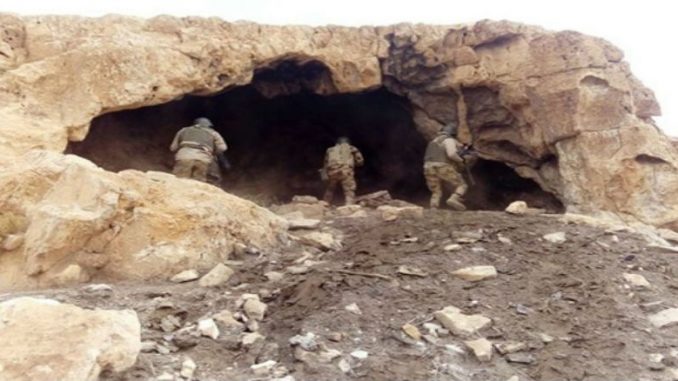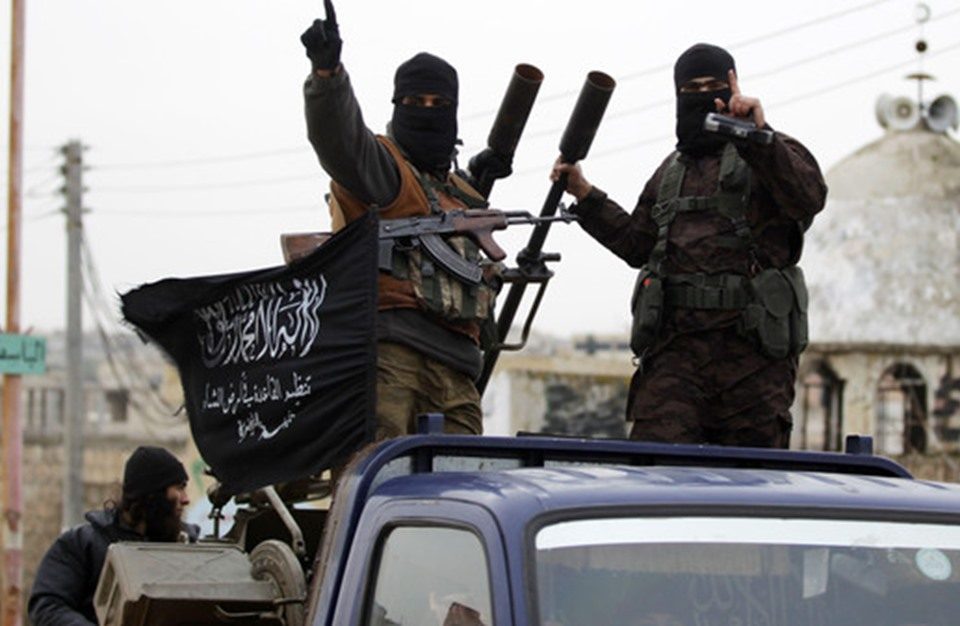
U.S Mediterranean fleet is moving into position ready for a decision to launch Tomahawk cruise missiles for a crushing assault on the Islamic State’s mountain strongholds in central Sinai, according to the Israeli military intelligence website ‘Debkafile’, citing military and counter-terrorism sources.
This could be the second American strike in a month against a Middle East target, after 59 cruise missiles destroyed one-fifth of the Syrian air force at the Sheirat air base on April 7 in response to Assad’s chemical attack on Syrian civilians. The prospective American missile attack in Sinai would raise the war on ISIS in the Middle East to a new phase.
On April 3, Abdel-Fattah al-Sisi met US President Donald Trump in his first official visit to Washington. During their meeting in the Oval Office, Trump said, “You have a great friend and ally in the United States and in me.” Trump also said as he sat beside al-Sisi in the Oval Office, ”We agree on so many things.”
He added, “I just want to let everybody know in case there was any doubt that we are very much behind al-Sisi. He’s done a fantastic job in a very difficult situation. We are very much behind Egypt and the people of Egypt. The United States has, believe me, backing, and we have strong backing.”
There was no explicit statement that both leaders have talked about U.S carrying out strikes against ISIS in Sinai, however both issues enhancing security and military cooperation in the light of counter-terrorism scheme.
Moreover, al-Sisi would have talked about the immense difficulty of overcoming the Islamic State’s affiliate group -known as Sinai Province- when its headquarters were dug into an interconnected web of tunnels and caves in the central Jabal (Mount) al-Halal of the peninsula.
The central Jabal (Mount) al-Halal, nicknamed the “Tora Bora of Sinai,” approach roads to this mountain fastness are few and far between, in common with the Afghan cave network near the Pakistan border destroyed on April 13 by the biggest non-nuclear bomb, the GBU-43/B, in the American arsenal.
It is worth mentioning that the last Egyptian operation on ISIS’ towering mountain stronghold took place on April 2, shortly before al-Sisi traveled to Washington.
During that time, the Egyptian military announced that 31 terrorists had been killed and a number of caves holding arms and ammunition destroyed. But the damage was not devastating enough to disrupt the Islamist militants’ operations, according to Debka file’s military sources report.
The report stated that most of the militants escaped with the help of allied Bedouin tribesmen who, familiar with every nook and cranny in the desert peninsula, guided them to safety in new caves in Jabal Halal that were even more inaccessible to Egyptian troops.Their new headquarters can only be destroyed by cruise missiles capable of exploding underground.
According to the Egyptians and Americans perspective, if the Jabal Halal cave system sheltering the ISIS-Sinai core command center is destroyed, its long campaign of terror will be curtailed. In addition, the flow of ISIS manpower, arms and explosives from the mountain to the networks ,which carry out attacks against the Egyptian forces of northern Sinai,will dry up.
“Jabal Halal is also the hub of the ISIS smuggling networks, through which fighters and arms are moved from southern Libya into Sinai and Egypt. Knocking it out will also deliver a resounding blow to that traffic,”said the report.
The Israeli military site claims that that a final decision to go ahead with a US missile assault on central Sinai rests with U.S Defense Secretary James Mattis who is due to arrive in Cairo on Wednesday, April 19. The Pentagon stated that Mattis is scheduled to visit Egypt for security talks and for a ceremony at Egypt’s Unknown Soldier Memorial.
Since the 2013 military coup that overthrew the first democratically elected President Mohamed Morsi, Egypt has struggled to combat a wave of Islamic militancy.
The Sinai-based IS affiliate, known as Sinai Province, has mainly attacked police and military soldiers, but has also claimed bombings that killed civilians, including the downing of a Russian passenger plane over the Sinai in 2015, which killed all 224 people on board and destructed Egypt’s tourism industry.


